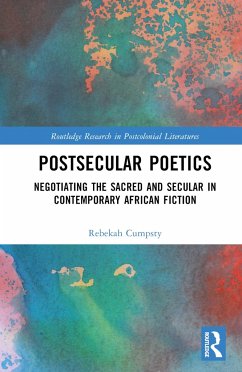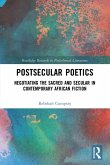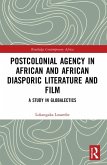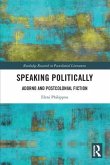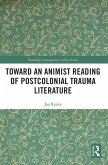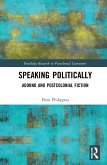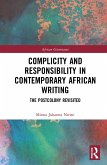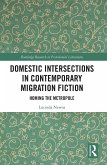This book is the first full-length study of the postsecular in African literatures. Religion, secularism, and the intricate negotiations between the two, codified in recent criticism as postsecularism, are fundamental conditions of globalized modernity. These concerns have been addressed in social science disciplines, but they have largely been neglected in postcolonial and literary studies. To remedy this oversight, this monograph draws together four areas of study: it brings debates in religious and postsecular studies to bear on African literatures and postcolonial studies. The focus of this interdisciplinary study is to understand how postsecular negotiations manifest in postcolonial African settings and how they are represented and registered in fiction. Through this focus, this book reveals how African and African-diasporic authors radically disrupt the epistemological and ontological modalities of globalized literary production, often characterized as secular, and imagine alternatives which incorporate the sacred into a postsecular world.
'In a series of supple arguments and granular readings, Postsecular Poetics enables African criticism to catch up with African fiction, recognizing that the sacred and the secular will not be disentangled. Rebekah Cumpsty's searching and compassionate book is a vital new reading of the African novel.'
Professor David Attwell, University of York, United Kingdom
'Postsecular Poetics is a groundbreaking book that powerfully explores the fascinating but understudied connections among the sacred, secular, religious, and postsecular in African literatures. Marked by rigorous interdisciplinary theorizations and subtle close readings across diverse national and literary cultures, Rebekah Cumpsty's analyses are persuasive and timely. A pioneering achievement, this book has set the mark for future criticism and understanding of the sacred and postsecular in African literatures.'
Manav Ratti, author of The Postsecular Imagination: Postcolonialism, Religion, and Literature
'African literature has never been fully secular. Still, perhaps due to the influence of Edward Said's "secular criticism," scholars often ignore African writers' habitual probing of the sacred, or simply filter such writing through a secular interpretive paradigm. By applying instead a postsecular approach to the study of African fiction, Cumpsty fills an important gap in the field of African literary studies. Her nuanced and thought-provoking close readings that follow are a joy to experience.'
Ryan Topper, Western Oregon University, USA
Professor David Attwell, University of York, United Kingdom
'Postsecular Poetics is a groundbreaking book that powerfully explores the fascinating but understudied connections among the sacred, secular, religious, and postsecular in African literatures. Marked by rigorous interdisciplinary theorizations and subtle close readings across diverse national and literary cultures, Rebekah Cumpsty's analyses are persuasive and timely. A pioneering achievement, this book has set the mark for future criticism and understanding of the sacred and postsecular in African literatures.'
Manav Ratti, author of The Postsecular Imagination: Postcolonialism, Religion, and Literature
'African literature has never been fully secular. Still, perhaps due to the influence of Edward Said's "secular criticism," scholars often ignore African writers' habitual probing of the sacred, or simply filter such writing through a secular interpretive paradigm. By applying instead a postsecular approach to the study of African fiction, Cumpsty fills an important gap in the field of African literary studies. Her nuanced and thought-provoking close readings that follow are a joy to experience.'
Ryan Topper, Western Oregon University, USA

